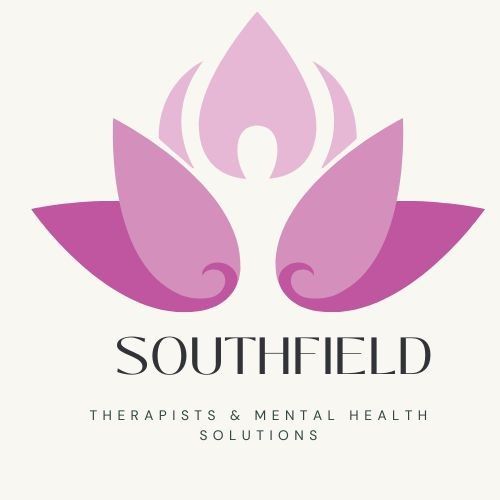What Are the Signs of Depression? Understanding the Symptoms and Finding the Right Help in Southfield, Michigan
Understanding the Signs of Depression and Finding Help in Southfield, Michigan

Recognize the early signs of depression and discover how Southfield Therapist & Mental Health Solutions connects you with trusted, licensed mental health professionals in Southfield, Michigan
Depression is more than occasional sadness — it’s a complex condition that affects how you think, feel, and function day to day. Millions of people experience depression each year, yet many struggle in silence because they don’t recognize the symptoms or don’t know where to turn for help.
At
Southfield Therapist & Mental Health Solutions, we understand that finding the right therapist or mental health provider can feel overwhelming. That’s why our team is here to simplify the process.
We’re
not a mental health clinic — we’re a
referral service dedicated to helping individuals and families in Southfield, Michigan connect with licensed therapists, counselors, and psychiatrists who fit their needs, preferences, and insurance coverage.
In this post, we’ll explore the key signs of depression, how it affects everyday life, and how to take the next step toward getting the right care for yourself or someone you love.
What Is Depression?
Depression, also known as major depressive disorder (MDD), is a common mental health condition characterized by persistent sadness, loss of interest or pleasure in activities, and difficulty functioning in daily life. It can affect anyone — regardless of age, gender, or background.
Depression is not simply a matter of “snapping out of it.” It’s a genuine medical condition involving changes in brain chemistry, thought patterns, and energy levels. For some, it may appear after a major life event or loss; for others, it develops gradually without a clear trigger.
The Common Signs and Symptoms of Depression
Recognizing the signs early is the first step toward healing. While symptoms can vary from person to person, here are the most common indicators of depression:
1. Persistent Sadness or Hopelessness
You may feel down most of the time, even when things seem to be going well. This sadness can last for weeks or months and may not have a clear cause. Many describe it as a heavy, lingering cloud that doesn’t lift.
2. Loss of Interest in Activities
Things you once enjoyed — hobbies, spending time with loved ones, music, or exercise — may no longer bring pleasure. This is known as anhedonia, and it’s one of the hallmark symptoms of depression.
3. Changes in Appetite or Weight
Depression can lead to overeating or loss of appetite. Some people lose significant weight without trying, while others may eat more as a form of emotional comfort.
4. Sleep Disturbances
Depression often affects sleep patterns. You may find it hard to fall asleep, wake up frequently during the night, or sleep much longer than usual. Either extreme can worsen fatigue and low energy.
5. Fatigue or Lack of Energy
Even simple tasks may feel exhausting. Depression can drain motivation and make daily routines — such as showering, cooking, or going to work — feel overwhelming.
6. Feelings of Worthlessness or Guilt
People with depression often experience intense self-criticism or guilt over things that are not their fault. This distorted sense of self can make it difficult to feel hopeful about the future.
7. Difficulty Concentrating
Depression can affect your ability to think clearly, focus, or make decisions. You might forget small details or struggle to complete tasks that were once easy.
8. Physical Symptoms
Headaches, body aches, digestive problems, and unexplained pain are common. These symptoms are real — depression affects the body as well as the mind.
9. Irritability or Anger
Depression doesn’t always look like sadness. For some people, it appears as irritability, frustration, or frequent anger outbursts, especially in men and teens.
10. Thoughts of Death or Suicide
In severe cases, depression can cause thoughts of self-harm or suicide. If you ever feel unsafe with your thoughts, please reach out for immediate help by calling 988, the Suicide and Crisis Lifeline — available 24/7.
How Depression Affects Daily Life
Depression impacts far more than mood — it influences relationships, work performance, self-esteem, and overall physical health. Someone with depression might:
- Withdraw from social activities
- Struggle to meet deadlines or maintain focus
- Have less patience with family or co-workers
- Experience conflict in relationships
- Neglect self-care or lose track of time
Left untreated, depression can worsen and make it harder to recover. But with proper support and treatment, most people experience significant improvement and often full remission of symptoms.
Why It’s Important to Seek Help Early
Early treatment can make a major difference in how quickly someone recovers. The longer depression continues, the harder it becomes to break negative thought patterns and reestablish healthy habits.
Getting help early means:
- Preventing symptoms from worsening
- Reducing the risk of anxiety or substance use
- Improving work, school, and relationships
- Increasing overall quality of life
Many people delay treatment because they don’t know where to start — that’s where we come in.
How Southfield Therapist & Mental Health Solutions Can Help
We know that finding the right therapist, counselor, or psychiatrist can be confusing, especially when you’re already struggling with low energy and motivation.
At Southfield Therapist & Mental Health Solutions, our mission is to make that process easier. We are not a mental health clinic — we are a referral service that helps connect individuals and families to licensed professionals within their insurance network who specialize in depression, anxiety, trauma, and related concerns.
Here’s how our process works:
- You reach out to us.
Share your needs, symptoms, or preferences. You don’t have to have everything figured out — just tell us how you’ve been feeling. - We match you with a qualified provider.
We maintain a network of trusted, licensed professionals in Southfield and nearby areas, including therapists, psychologists, and psychiatrists. - We verify insurance and availability.
Our team ensures your therapist accepts your insurance plan and has openings for new clients. - You begin your journey toward healing.
Once connected, you can schedule your intake session directly with the provider and begin receiving the personalized care you deserve.
This approach saves you time, reduces frustration, and ensures that you connect with the right person for your specific needs.
Types of Therapy That Help With Depression
When you connect with a licensed professional through our referral network, your therapist may recommend one or more of the following evidence-based approaches:
1. Cognitive Behavioral Therapy (CBT)
CBT helps identify and change negative thought patterns that fuel depression. It teaches practical skills to challenge unhelpful beliefs and replace them with more balanced perspectives.
2. Dialectical Behavior Therapy (DBT)
DBT combines mindfulness and emotion regulation techniques to help manage intense emotions and reduce self-destructive behaviors. It’s especially useful for people who experience mood swings or self-criticism.
3. Interpersonal Therapy (IPT)
This form of therapy focuses on relationships and life transitions, helping you improve communication and resolve conflict that contributes to depressive feelings.
4. Psychodynamic Therapy
This deeper approach explores unresolved experiences and emotional patterns from the past that may still affect your present thoughts and behaviors.
5. Medication Management
In some cases, medication prescribed by a psychiatrist or psychiatric nurse practitioner can help stabilize mood and enhance the effectiveness of therapy.
Each person’s treatment journey is unique — what works for one individual may not be right for another. That’s why connecting with the right provider matters.
Lifestyle and Self-Care Tips for Managing Depression
While professional treatment is essential, everyday choices also play an important role in recovery.
Here are a few lifestyle habits that support emotional well-being:
- Stay physically active: Even short walks or light stretching can lift mood.
- Eat nourishing foods: Aim for a balanced diet with whole grains, lean protein, and vegetables.
- Get enough rest: Create a consistent sleep routine and reduce screen time before bed.
- Limit alcohol and caffeine: Both can worsen mood and disrupt sleep.
- Connect with others: Isolation deepens depression — reach out to friends, family, or a support group.
- Practice mindfulness: Meditation or journaling can help you process emotions more calmly.
- Set small, realistic goals: Accomplishing small tasks each day rebuilds confidence.
Recovery takes time, but small, consistent steps add up to real progress.
Frequently Asked Questions (Q&A)
1. How can I tell the difference between sadness and depression?
Sadness is a normal emotion that usually passes within days. Depression lasts for weeks or months, affecting energy, motivation, appetite, sleep, and relationships. If you no longer enjoy activities you once loved or struggle to function in daily life, it may be time to reach out for help.
2. Can depression go away on its own?
Mild symptoms may improve with time and self-care, but moderate to severe depression often requires professional treatment. Therapy and, in some cases, medication significantly increase the chances of full recovery.
3. What causes depression?
Depression has many contributing factors — genetics, brain chemistry, medical conditions, chronic stress, trauma, or major life changes. It’s not a sign of weakness; it’s a health condition that deserves support and treatment.
4. How do I know what type of therapy is right for me?
A mental health professional can help determine the best approach based on your symptoms, personality, and goals. When you contact Southfield Therapist & Mental Health Solutions, our team matches you with a provider whose expertise aligns with your needs.
5. What should I do if I think someone I love is depressed?
Start by expressing concern in a compassionate, non-judgmental way. Encourage them to seek help and offer to assist in finding a therapist or calling our referral team. If they express thoughts of self-harm, call 988 right away.
Finding Depression Support in Southfield, Michigan
If you or someone you care about is struggling with depression, you don’t have to navigate the process alone. Southfield Therapist & Mental Health Solutions makes it simple to find trusted, qualified care in your community.
We are not a mental health clinic — we’re a referral service connecting you with licensed mental health professionals who accept your insurance and specialize in depression, anxiety, and related conditions.
Our goal is to make getting help stress-free, confidential, and compassionate — because everyone deserves support on their journey toward healing.
Take the First Step Toward Hope and Healing
Depression can make even small steps feel impossible, but reaching out for help is one of the most powerful things you can do.
At Southfield Therapist & Mental Health Solutions, we’ll help you connect with the right professional — someone who listens, understands, and provides the tools to help you move forward.
📞 Call us today at (248) 986-2484 to get matched with a trusted therapist or psychiatrist in Southfield, Michigan.
You’re not alone — the right help is closer than you think.
